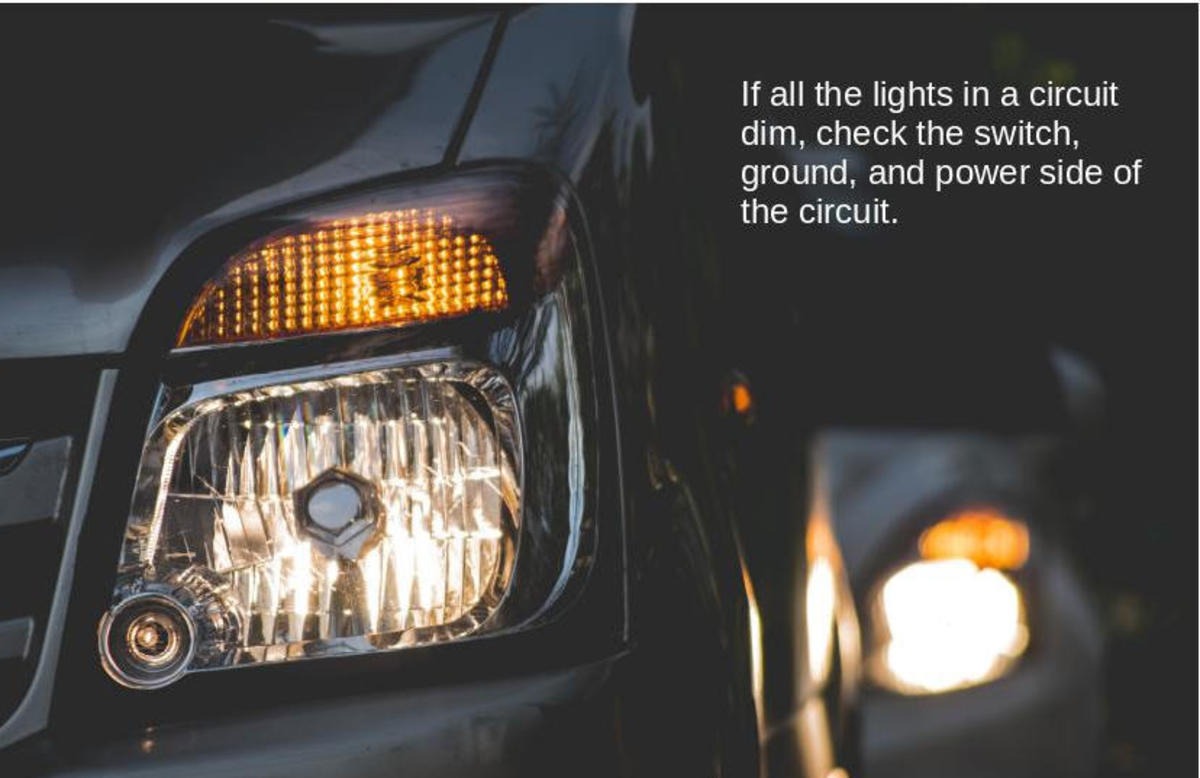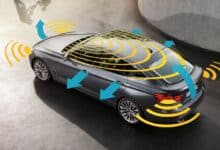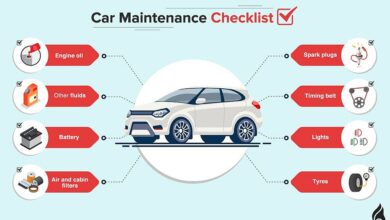How to Check the lighting system

Your vehicle’s lighting system is a critical component for ensuring safety on the road, both for you and other drivers. Regular checks and maintenance of the lighting system are imperative to guarantee optimal visibility during various driving conditions. This comprehensive guide will equip you with the knowledge and steps needed to assess and maintain your vehicle’s lighting system. From inspecting headlights and taillights to addressing common issues, delve into this guide to ensure that your lights shine brightly, enhancing road safety and keeping your journeys well-lit. Illuminate your path with confidence by mastering the art of checking your vehicle’s lighting system.

Contents
- 1 Understanding the Basics of Lighting Systems
- 2 Gathering the Necessary Tools
- 3 Safety First – Turn Off the Power
- 4 Inspecting Light Fixtures
- 5 Examining Light Switches
- 6 Assessing Wiring Connections
- 7 Troubleshooting Other Common Lighting Issues
- 8 When to Seek Professional Help
- 9 Lights On: Navigating Your Vehicle’s Illumination with Confidence
Understanding the Basics of Lighting Systems
Before we dive into the process of checking your lighting system, it’s essential to have a basic understanding of how it works. A typical lighting system consists of various components, including the power source, wiring, switches, fixtures, and bulbs. The power source could be connected to the main electrical panel or a dedicated circuit specifically for lighting. Understanding these components will help you diagnose potential issues more efficiently.
Gathering the Necessary Tools
Before you begin inspecting your lighting system, it’s essential to gather the necessary tools to make the process smoother. Here are some tools that will come in handy:
- Voltage tester: This tool helps determine if there is electricity flowing through the wires.
- Screwdriver set: Different types of screws may be used to secure light fixtures or switch plates.
- Wire strippers: You may need to strip wires during the inspection or when replacing faulty components.
- Ladder: Depending on the height of your fixtures, you may require a ladder to access them safely.
- Replacement bulbs: Keep spare bulbs of various wattages and types in case you need to replace any.
Safety First – Turn Off the Power
Before you start inspecting any part of your lighting system, always prioritize safety. Start by turning off the power supply to prevent any risk of electric shock. Locate your electrical panel and find the circuit breaker corresponding to your lighting circuit. Flip the switch to the “Off” position. For added safety, use a voltage tester to double-check if there is no electricity flowing through the wires.
See more: Cooling and cooling system maintenance guide
Inspecting Light Fixtures
The next step involves inspecting your light fixtures individually. Follow these steps for each fixture:
- Remove the light bulb: Unscrew the bulb from its socket and inspect it for any signs of damage such as blackening or burn marks. Replace it with a new bulb if necessary.
- Check the socket: Examine the socket for any loose connections or signs of burning or corrosion. If you notice any issues, it’s advisable to replace the socket.
- Test the switch: Turn the light switch on and off multiple times to ensure it is functioning correctly. If the switch is unresponsive or shows signs of physical damage, consider replacing it.
- Inspect the wiring: Carefully examine the wiring inside the fixture for any loose connections, frayed wires, or exposed conductors. If you notice any damage, it’s crucial to repair or replace the wiring.
Examining Light Switches
Problems with light switches can often be the cause of lighting issues. Follow these steps to inspect your light switches:
- Remove the switch plate cover: Use a screwdriver to remove the screws securing the switch plate cover and carefully pull it off.
- Inspect the switch: Check for loose connections or signs of damage such as melted plastic or burnt wires. If there are any issues, it’s recommended to replace the switch.
- Test the switch functionality: Turn the switch on and off multiple times while observing if it operates smoothly without any flickering or delay.
- Check for loose wires: Ensure that all wires connected to the switch are securely fastened using wire nuts or terminal screws.
Assessing Wiring Connections
The wiring connections play a vital role in maintaining a functional lighting system. Here’s how you can assess them:
- Identify the electrical panel: Locate the electrical panel that supplies power to your lighting circuit.
- Check for loose connections: Inspect all wiring connections at the panel to ensure they are tight and secure. Loose connections can cause flickering lights or intermittent power supply.
- Examine junction boxes: Junction boxes are where different electrical wires connect. Open each junction box along your lighting circuit and inspect for loose or damaged wires. Repair or replace as needed.
- Test voltage levels: Use a voltage tester to measure voltage levels at various points along your lighting circuit. Inconsistent voltage readings could indicate a wiring issue that needs further investigation.
Troubleshooting Other Common Lighting Issues
Apart from fixture and wiring problems, there are other common issues that can affect your lighting system:
- Dimming lights: Dimming lights could indicate an issue with voltage levels or a faulty dimmer switch. Test voltage levels and consider replacing the dimmer switch if necessary.
- Flickering lights: Flickering lights may be caused by loose connections, faulty bulbs, or an overloaded circuit. Inspect all connections, replace bulbs, and redistribute electrical load accordingly.
- Circuit breaker tripping: If your circuit breaker frequently trips when you turn on specific lights, it could be due to a short circuit or excessive load on that circuit. Consult an electrician to address this issue.
When to Seek Professional Help
While many lighting issues can be resolved by following this guide, some problems may require professional assistance. It’s important to know when it’s time to call an electrician:
- If you encounter complex wiring issues that exceed your knowledge and skills.
- When dealing with an old electrical system that requires rewiring or upgrading.
- If you are unsure about working with live electrical components and want to prioritize safety.
Regularly checking and maintaining your lighting system is essential for a well-lit and safe home environment. By following the steps outlined in this comprehensive guide, you can troubleshoot common lighting issues and ensure that your lighting system operates efficiently. Remember, if you encounter any complex problems or feel uncomfortable working with electrical components, it’s best to seek professional help from a licensed electrician.
See more news at: car care vip




































